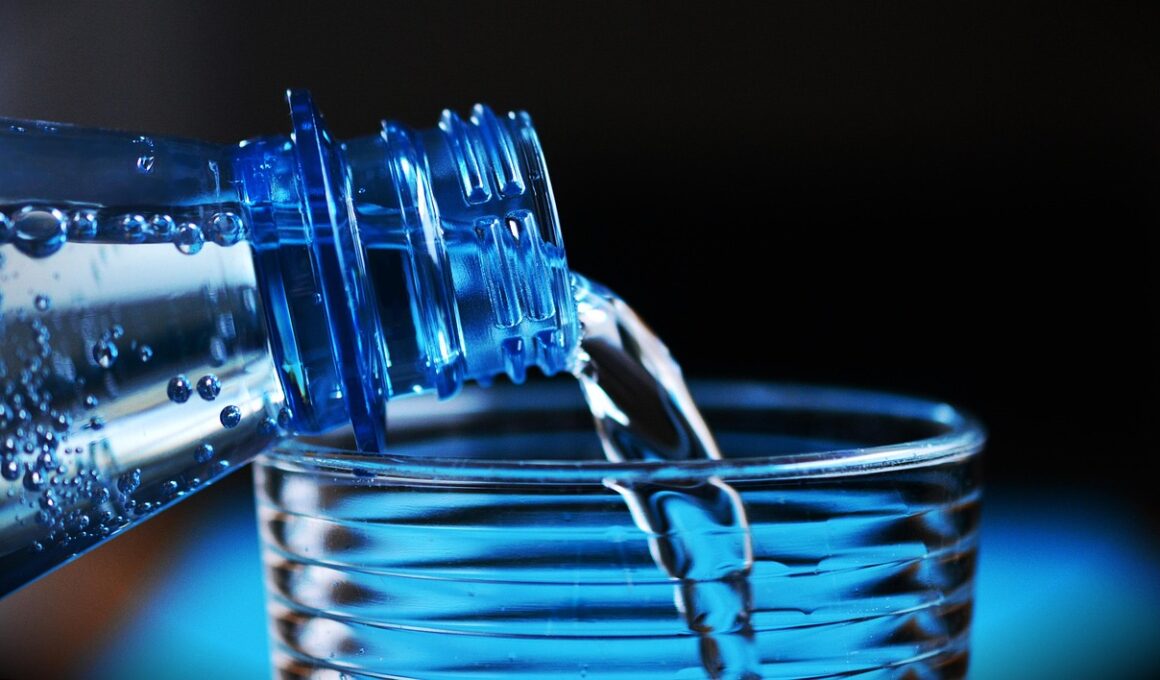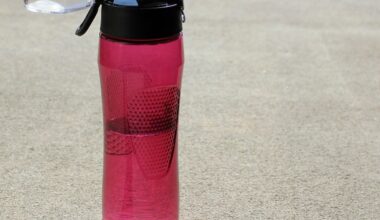How Environmental Factors Influence Skin Hydration and Water Needs
Skin health is greatly impacted by hydration levels, which can be influenced by several environmental factors. For instance, dry climates can lead to rapid moisture loss from the skin, leaving it dehydrated and prone to irritation. In such scenarios, proper water intake becomes essential, and individuals may need to adjust their hydration practices accordingly. Air conditioning and heating systems can also contribute to dry indoor air, exacerbating skin hydration issues. One effective method to combat dryness is incorporating humidifiers into living spaces, which can help maintain moisture. Moreover, the use of emollient-rich moisturizers can create a protective barrier that locks in hydration. It’s important to recognize that hydration needs vary by individual, influenced by factors such as age, activity levels, and overall health. For optimal skin health, a consistent water intake routine combined with appropriate skincare products can foster a radiant complexion. To support skin hydration, individuals should also pay attention to their diet, incorporating water-rich foods like fruits and vegetables. Regular hydration not only benefits the skin but also enhances overall well-being.
The balance between hydration and skin health is particularly crucial during seasonal changes. For example, winter months often bring colder temperatures and low humidity levels, leading to increased water loss from the skin. In these conditions, it is vital to increase water intake to maintain elasticity and softness. Additionally, certain environmental stressors like harsh winds can further complicate skin hydration issues, thus negatively impacting its barrier function. Adopting a suitable skincare routine helps mitigate these effects. Products that contain ingredients such as hyaluronic acid can significantly assist in maintaining hydration levels. Furthermore, engaging in a consistent skincare regimen that emphasizes hydration helps fortify the skin’s natural barrier while addressing environmental damage. The effects of UV exposure during summer months should also be considered, as excessive sun exposure can lead to dehydration, causing skin to lose its youthful appearance. Utilizing sunscreen is essential for protecting the skin from harmful rays, while also providing hydration support through moisturizers formulated for outdoor use. Such practices ensure a more resilient barrier against environmental factors.
Impact of Diet on Hydration
The role of diet in hydration impacts skin health more than many realize. Consuming a diet rich in water-dense foods can significantly enhance overall hydration, benefiting the skin. Foods like cucumbers, strawberries, and watermelon are excellent choices for improving skin moisture levels. Additionally, omega-3 fatty acids found in fish, walnuts, and flaxseeds can help improve skin elasticity and hydration. Such nutrients increase cellular function and maintain skin suppleness, making it critical to have a balanced diet filled with essential vitamins and minerals. It is equally important to limit alcohol and caffeine intake, as both substances can dehydrate the body. Moreover, electrolytes should be part of the hydration equation, particularly in maintaining fluid balance and ensuring skin hydration. Hydrating drinks, like coconut water, can offer replenishment after physical activities or exposure to heat. Staying hydrated internally is just as important as external hydration methods, such as topical applications. Considering the synergistic effects of diet and hydration can ultimately enhance skin health and functionality.
Climate plays an essential role in determining skin hydration needs. For instance, high-altitude environments can lead to intense dryness, making it imperative to increase fluid intake to prevent dehydration. During such conditions, adjustments in personal skincare regimens may also be necessary. Individuals may find themselves needing richer creams and serums designed to lock in moisture effectively. The balance of humidity levels is critical; low humidity can compromise the skin barrier, while optimal humidity supports moisture retention. It’s also beneficial to pay attention to local environmental pollutants, which can exacerbate hydrating challenges. On days when pollution levels are high, skin may require additional cleansing and nurturing to support hydration. Skincare that incorporates antioxidants can be particularly effective in combating environmental stressors, ultimately promoting healthier skin hydration levels. Regular exposure to natural elements, like seawater or natural springs, can impart valuable benefits to skin hydration, rejuvenating its appearance and health. Exploring local environments can reveal opportunities for enhancing natural skin hydration through unique and local resources.
Physical Activity and Hydration Needs
Physical activity is another significant factor influencing skin hydration. Engaging in exercise can enhance circulation, promoting better delivery of nutrients to the skin, thereby supporting its health. However, increased perspiration can lead to higher hydration needs, both internally and for the skin. Athletes or individuals participating in regular exercise should pay special attention to hydration strategies to ensure optimal skin health. Replenishing fluids lost during activity is crucial, especially in hot and humid environments, where evaporation can lead to rapid dehydration. It is important to consume water before, during, and after workouts to maintain skin moisture levels. Additionally, a post-exercise skin-care regimen that includes hydrating serums and creams can help restore moisture to the skin. Choosing fitness activities that promote well-being and hydration, such as swimming, can also offer added benefits. As water is lost through sweat, adding electrolytes can help maintain not just hydration but also enhance performance and skin recovery. Optimal hydration through structured routines should be coupled with mindful skincare practices for comprehensive care.
Sleep quality is often underestimated in its impact on skin hydration and overall health. Proper, restful sleep allows the body to repair and rejuvenate itself naturally. During sleep, the skin’s barrier function is restored, which helps prevent moisture loss. However, inadequate rest and high stress can lead to elevated cortisol levels, negatively affecting the skin’s hydration levels. Establishing a calming sleep routine is fundamental, especially in combatting daily environmental stresses, allowing the skin to retain water effectively. Furthermore, a well-hydrated body is better equipped to handle stressors from external environments. Incorporating practices like meditation or gentle yoga before bed can enhance sleep quality, ultimately supporting skin hydration. Nutrition also plays a significant role; consuming foods rich in antioxidants before bedtime can enhance skin recovery during sleep. Establishing patterns that include maintaining a breathable sleeping area and staying hydrated throughout the day contributes to improved skin conditions overnight. For those who struggle with sleep, a consult with professionals may be warranted to address any underlying issues impacting skin hydration.
Conclusion
In conclusion, understanding the environmental factors that influence skin hydration is essential for maintaining healthy skin. By recognizing the impact of climate, diet, physical activity, dosage of water intake, and sleep quality, individuals can better navigate their hydration strategies. Customizing hydration strategies to fit one’s lifestyle and environmental conditions allows for a proactive approach to skin health. Implementing these strategies not only promotes physical well-being but also enhances skin quality and radiance. Ultimately, individuals can improve skin resilience against hydration loss by considering these crucial factors, leading to lasting benefits. Regularly assessing personal needs in hydration and skincare will result in glowing, healthy skin that can withstand various environmental challenges. Emphasizing hydration through both diet and skincare will ensure the skin has the necessary support to thrive. As awareness grows about the importance of hydration, addressing individual needs becomes increasingly significant. With commitment and awareness, maintaining skin hydration levels will become an integral part of daily self-care practices.
This is the final paragraph with exactly 190 words for a deeper understanding of hydration.


